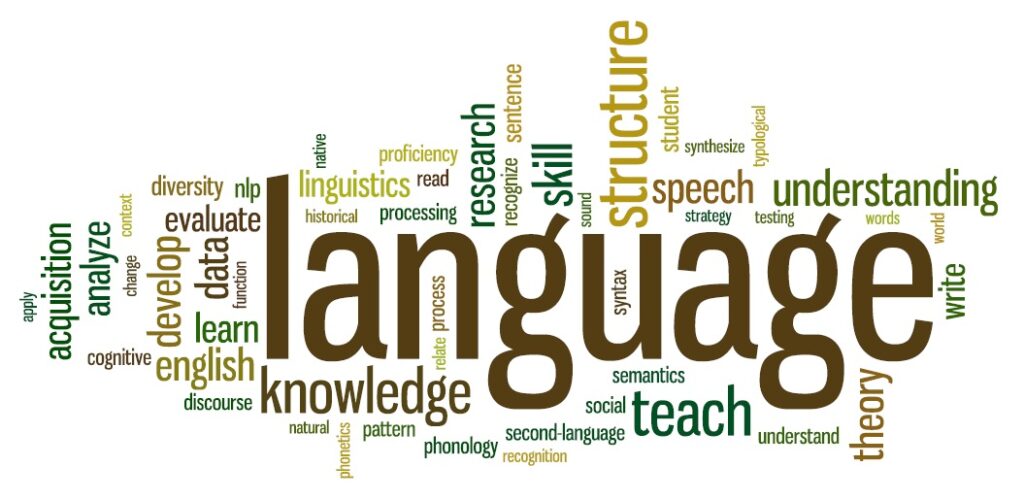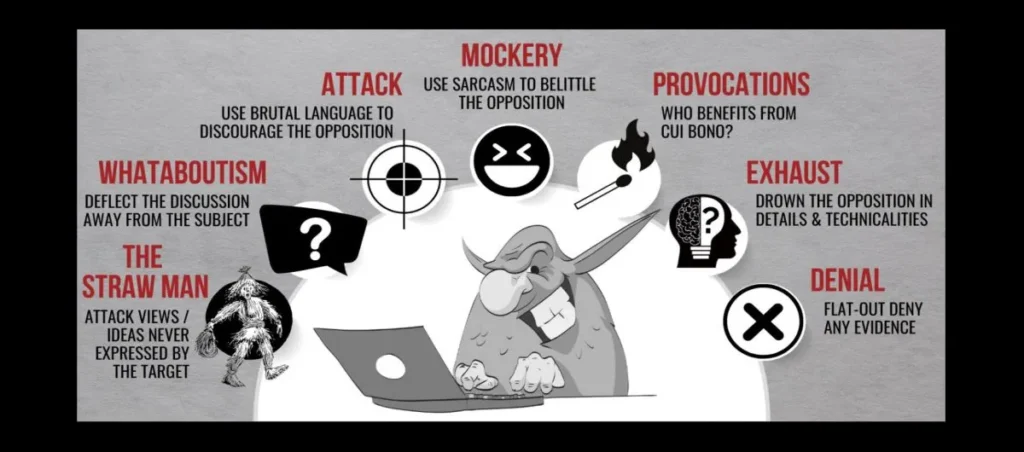Language is central to journalism, of course. That’s true whether we work with the printed word or the spoken one. So, a couple very different recent pieces showcase the power – and perversion – of words. They are worth pondering as a host of new terms worm their way into the public prints and airwaves — or are likely to do so.
Both pieces are exceptional. George Packer, making “The Moral Case Against Equity Language” in The Atlantic, inveighs against the diminishment of words in so-called equity-language guides. These publications take what used to be called political correctness to new depths as they counsel myriad ways to avoid offending. “Enslaved persons” replaces “slave,” for example. And “people with limited resources” replaces “the poor.”
And, in The Washington Post’s “Much of the 2024 GOP field focuses on dark, apocalyptic themes,” Ashley Parker and some colleagues enumerate the dire warnings that some Republican candidates hope will sweep them into the White House. While reminiscent of Trump’s “American carnage,” the phrases are new and improved, as the contenders excoriate “the woke mob” and attack President Biden’s “blueprint to ruin America.”
Tackling Packer’s theme first, there’s no question that offensive terms deserve to be junked. Does anyone use “gypped” or “jewed” anymore? But language guides such as “A Progressive’s Style Guide” and the Racial Equity Tools glossary seem like parodies, as does the guidance of groups such as the Sierra Club. Did you know that “urban,” “vibrant,” “hardworking” and “brown bag” are all subtly racist? And, in San Francisco, some officials no longer refer to “felons,” but rather to “justice-involved persons.” Elsewhere, “stand” is barred for fear of offending those who can’t do so. (We should “protect our rights,” but never “stand up” for them, we’re told.)
Will such tortured or simply bland phrases slip into common parlance? It’s very likely they will, perhaps through universities where folks keenly jump on the latest linguistic trends. Many of my colleagues in the academy now routinely end their emails with counsel on which pronouns – he, she, they, ze — they prefer for themselves. And how long will it be before The Associated Press Stylebook embraces the new lingo, just as it grew to love “they” instead of “he or she?” Going even further, NPR nowadays seems to refer to every individual as “they,” even when he or she is named and his or her distinctly gendered voice is aired (I keep waiting for the second voice to chime in).
Certainly, language must evolve. And dehumanizing or pejorative terms are best sent the way of Shakespeare’s obsolete phrases. AP, for instance, is correct to ban “illegals” and “illegal immigrant,” preferring the wordy but more precise “immigrants lacking permanent legal status.” And the outfit wisely and sensitively favors “people with disabilities” or “disabled people” over “the disabled.” In a recent class, one of my talented students educated me when she said the term “the Blacks” or “Blacks” made her skin crawl; “Black people,” she held, makes it clear we are dealing with people, not objects. That seems like something always worth remembering, whatever group we deal with. For that matter, if someone wants to be called “they,” instead of “he” or “she,” that seems fine – just don’t mandate such vagueness for everyone.
For his part, Packer offers trenchant insights into the motivations and troubling effects of the latest language distortion. “The rationale for equity-language guides is hard to fault,” he writes. “They seek a world without oppression and injustice…. Avoiding slurs, calling attention to inadvertent insults, and speaking to people with dignity are essential things in any decent society.” But the risk is that soft or absurdly complex terms serve to mask the truth. As he writes, prison is no less brutal for “a person experiencing the criminal-justice system.” And obesity isn’t any healthier for people with “high weight.”
As for the political distortions that Parker et al. point out, it was shocking to many when Trump’s belittlement of his opponents and his bemoaning of America’s state under President Obama helped him win in 2016. Denigration in the coarse terms he used was uncommon among serious candidates in recent political history (though not in the earliest days of the Republic, of course). Nowadays, ridiculing and labeling one’s competitors is as common as Congress members indecorously (and inaccurately) shouting “liar” at a president in a national speech. Trump was said, by his supporters, merely to be telling it like it is, but was referring to Elizabeth Warren as “Pocahontas” just telling it more like racists would have it?
Parker’s report, describing how GOP aspirants are busy alerting us all to how Democrats plan to “ruin” and “destroy” America, offers a distinctly post-2016 take. Nikki Haley recently warned that “the Democrats are destroying our people’s patriotism and swapping it out for dangerous self-loathing.” Ron DeSantis exalted his state, Florida, as an alternative to a Democratic “dystopia, where people’s rights were curtailed and their livelihoods were destroyed.” And Trump menacingly asserted that he would be “your warrior” and “your justice,” vowing: “And to those who have been wronged and betrayed, I am your retribution.” It was only he who could “fix it” in the nation’s last presidential election, of course.
Yes, some Democrats are indulging in strong language, too, but does much of that not seem more rooted in reality? With the anniversary of the Jan. 6 insurrection still top of mind, Biden recently intoned: “Donald Trump and the MAGA Republicans represent an extremism that threatens the very foundations of our republic.” Hyperbole? Perhaps not, in light of the aims of those who invaded the Capitol dressed in military garb and wielding staves and pepper-spray as they called for the execution of the Vice President.
What’s unsettling about the GOP rhetoric, in addition to its heat, is that it seems untethered to facts or events. Jobless rates remain at historic lows. Patriotism remains in vogue in both parties. Rights – to such things as voting and abortion – would not be curtailed by Democrats, in fact, but very much would be limited by Republicans. And as for Trump’s seeming intention to be everyone’s “justice,” is he not really just hoping to wreak vengeance on those he believes have wronged him?
In the past, heated political language could be easily dismissed, especially when read critically in print or avoided by national TV networks. Nowadays, in our conflict-driven cable TV world, it gets lots of airplay. The more vile the crack, the more attention it gets, stoking the anger of the apparently very many angry folks out there. Such language helped get an otherwise undistinguished New York developer and political naif elected once already. For better or worse, it may help him – or an imitator of his — get to the White House once again.
The job of the media, however, is to point out when such language goes over the top. When it’s baseless, that needs to be illuminated. And, as they do so, the media need, too, to shun euphemism and vagueness (indeed, Packer’s piece is titled “The Moral Case Against Euphemism” in the print magazine, but the editors were likely mindful of search engines in retitling it online). Clarity and plainspokenness do not mean coarseness and, indeed, they are the stock-in-trade of good journalism.




